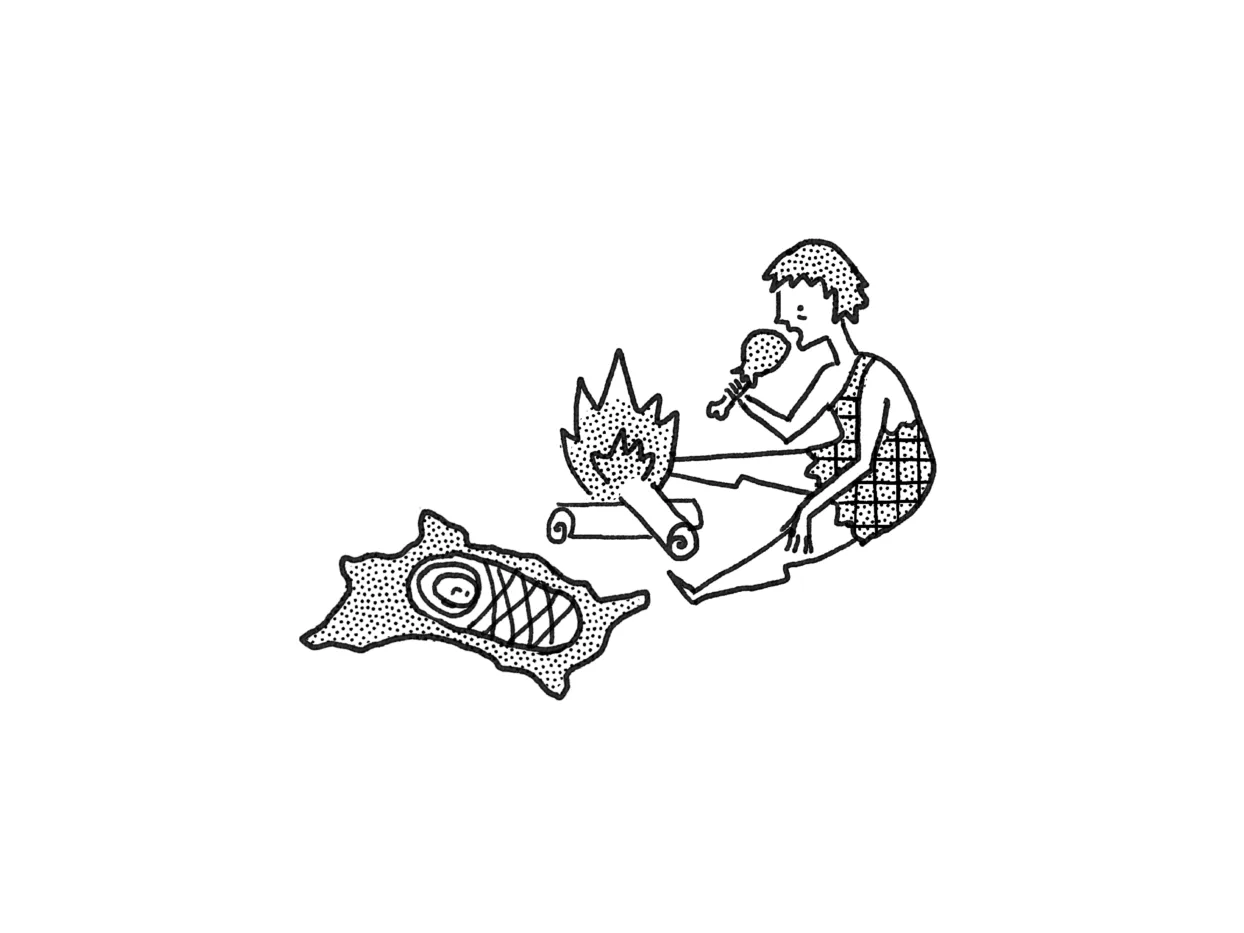
Image by Ivy Sanders Schneider

Image by Ivy Sanders Schneider
There is a surplus of children in this world; ask any orphan. They will probably frame the issue as a shortage of parents, and they might be onto something. One Thursday afternoon last fall, I escaped to a bar to read a book about hunter-gatherers, and a man my age struck up a conversation about whether, all things considered, we might have been better off under prehistoric arrangements. “No child support, am I right?” he said. That he assumed I would agree tells you what you need to know about our generation of fathers. I probably shouldn’t judge him too harshly. Maybe his kids have bad attitudes.
He was not wrong about the hunter-gatherer situation, at least as one camp of anthropologists understands it. The natural condition of Homo sapiens, by which I mean how we lived for the first 288,000 of our 300,000-some years as a species, was that a child knew their mother and could say only that their father was one of the band. It was a condition of uncertain paternity but also of enforced child support, insofar as adults shared responsibility for all children. If you were a grown man who lived with a kid in these circumstances, that was your kid — if not biologically then socially, practically, daily.
That’s how I became a father. I met my son when he was eight years old and legally adopted him four years later, but I was his dad long before I signed the papers. The arrangement is unthinkable to a lot of men. From a selfish standpoint, raising someone else’s biological offspring is a sucker’s game: you expend all of the resources but pass on none of the genes. (Or at least no strings of that genetic inheritance specific to you. The genomes of any two people are more than 99 percent identical.) It is true that my son does not smell like me, and he increasingly resembles a man neither of us has met. But biology is the least of our relationship. All you have to do is live with a kid and try to see things from their perspective, and you start to love them. I applied much the same method to my wife.
The National Council for Adoption estimates that 95,306 children were adopted in the United States in 2020, the year I legally became my son’s father. That number represents a seventeen percent decrease from the previous year (probably due to the pandemic, which anecdotally did seem to make the child-free, sex-right-in-the-living-room lifestyle seem a lot more appealing). Overall, though, the second half of the 2010s saw a steady rise in domestic adoptions, while international adoptions have dropped precipitously since 2004, probably because many countries in Asia, Africa, and South America have restricted or banned adoptions from abroad. The question of whether this trend is good or bad is liable to uncover certain values with which the forward-thinking American parent may not be comfortable.
But these statistics reflect only legal adoptions. They don’t capture the number of kids who started complaining about how their “dad” wouldn’t let them go to the mall because it was easier than saying “my mom’s boyfriend,” or the ones who got breakfast and a ride to school every morning from one guy and then spent ten days each summer visiting a different guy whose name was on their birth certificate. I have chosen these male parent examples because they comport with my own experience, but the data supports the impression that parental scarcity is, for the most part, an absence of dads. Of the thirty percent of American children who did not live with two parents in 2022, seven out of ten lived with their mother, while the number who lived with only their father was similar to the number who lived with no parent at all. All this is to say that the you-feed-’em, you-bought-’em definition of fatherhood is more relevant to our era than it has been in a long time.
Did adopting my son improve my quality of life? Ha ha, no, absolutely not. But it increased my quantity of life — the number and variety of experiences and the time spent up late thinking about them — and after a certain point, quantity becomes the whole game. Maybe there is some young man with artistic ambitions reading this magazine who suspects that he will not have time for children. Perhaps this young man will find, around age forty, that his ambitions have taken him just far enough to leave room for something else. The world might want less of his art than he can furnish; we are each at the mercy of market forces, after all. My advice to this young man, should he remember it, is to look around. Perhaps he will find some sector in which he can be a little more in demand.
Dan Brooks writes essays, fiction, and commentary from Missoula, Montana.